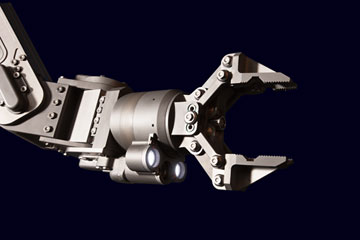
We can see jobs vanishing before our eyes. Airport ticket counters used to teem with employees; now only a handful stand by to assist customers who use kiosks. Travel agencies once brightened streets with posters touting sunny destinations; now people book vacations online. From accountants to X-ray technicians, technology has chipped away at a virtual alphabet of occupations. This revolution is likely to blame, in part, for the slow growth in jobs since the crash of 2008.
The automation of human labor is as old as the Industrial Revolution. From the steam engine and the cotton gin to the desktop computer and the robotic welder, machines have enabled leaps of efficiency that create far more jobs than they destroy. And yet many economists and technologists believe that things are different this time, that society is entering a new and troubling phase as computing power and other advances enable the creation of ever-more-powerful robots. What if the economic growth of the future produces more jobs for more robots, leaving humans behind? What if we're heading toward a future in which a handful of creative humans marshal an army of ever-more-intelligent machines while everyone else languishes? How does the world work without ... work?

